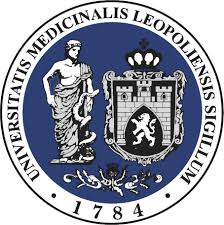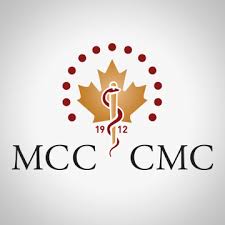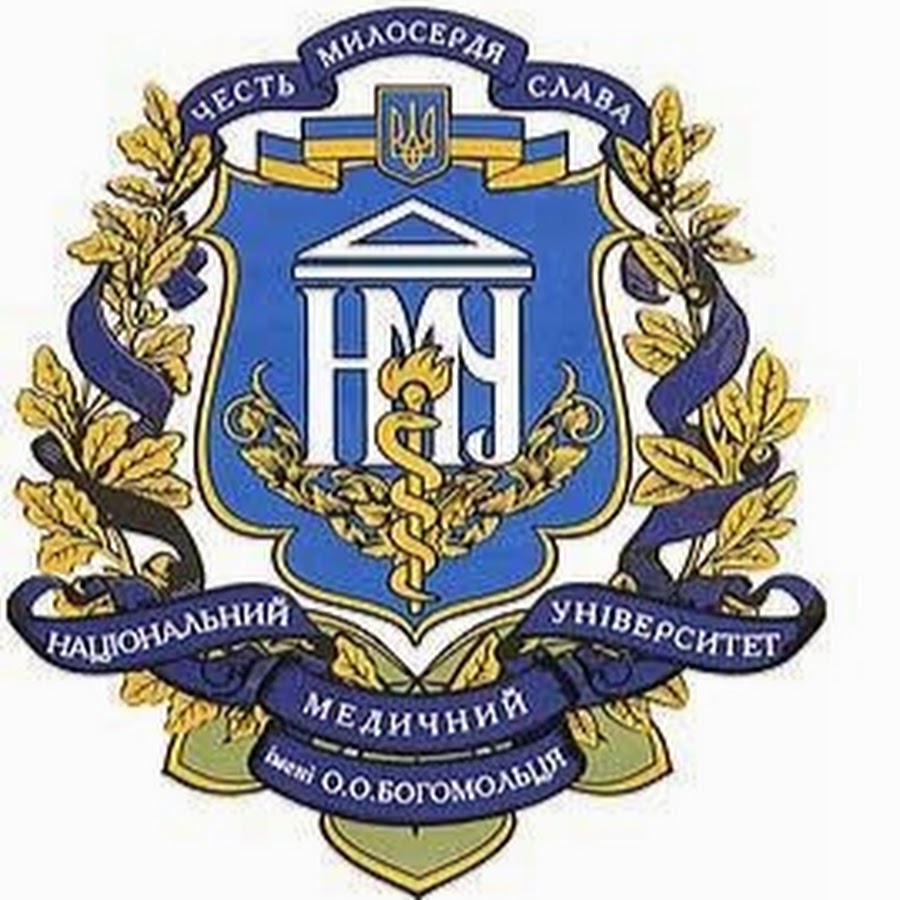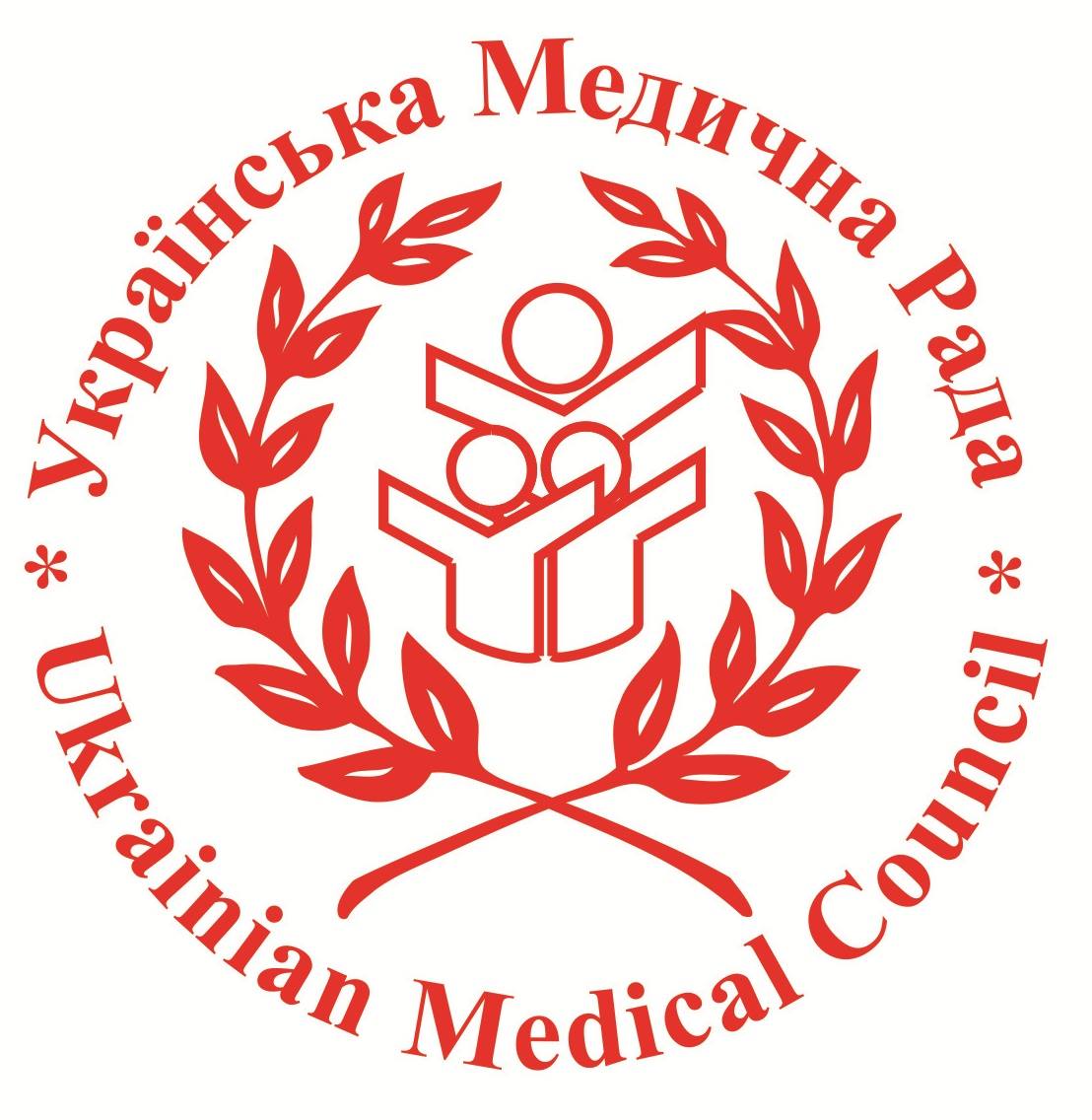KAZAKH NATIONAL MEDICAL UNIVERSITY
LOCATION OF KAZAKH NATIONAL UNIVERSITY, STUDY MBBS IN KAZAKHSTAN
Tole Bi Street 94, Almaty 050000, Kazakhstan
MAP LOCATION
Airports : ALMATY INTERNATIONAL UNIVERSITY
We MBBSUNIVERSITIES.COM guarantee you admission in the best medical colleges of KAZAKHSTAN with the best fee package.
We the team of doctors in MBBSUNIVERSITIES.COM had enough research through the medical colleges in KAZAKHSTAN and we will guide you to select the colleges for MBBS in KAZAKHSTAN
We guarantee you the cheapest package and minimum consultancy charges for MBBS ABROAD KAZAKH NATIONAL MEDICAL UNIVERSITY is Recognised by WHO and Medical council of India we are the No. 1 MBBS admission In Abroad Education guideline providers in India because we are doctors not agents. Just call our doctors because doctors can guide students better than agents - 1800-123-5619
They will give you information to select the Best Universities & be Your Complete Guide. They will provide you Step-by-step Guide for MBBS in Abroad and will help you to get DIRECT ADMISSION IN MBBS
Kazakh National Medical University, MBBS Admission in Kazakh National Medical University, MBBS Fee Structure of Kazakh National Medical University, Direct Admission in Kazakh National Medical University Kazakhiztan, Apply for MBBS Admission in Kazakh National Medical University, How to Get Direct Admission in MBBS in Kazakh National Medical University Kazakhisthan, Study MBBSin Kazakh National Medical University
DURATION OF THE COURSE – 4+1
MEDIUM OF INSTRUCTION – ENGLISH
CURRENCY- Kazakhistani TENGE
EXCHANGE RATE
1 KAZAKH – 5.35 INR
NATIONAL LANGUAGE- KAZAKH
About the country
Kazakhstan is by far the largest of the Central Asian states within the proposed South-Central Asian Union. It has borders with Russia, China, and the Central Asian countries of Kyrgyzstan, Uzbekistan, and Turkmenistan.
Kazakhstan is the world's ninth biggest country by size, and it is more than twice the size of the other Central Asian states combined. Its lack of significant historical sites and endless featureless steppe have put many off Kazakhstan, while many still are captivated by the emptiness and mystery of this Goliath state. It will be many travellers' first port of call on their Central Asian adventure, and there is much for the intrepid traveller to enjoy. Kazakhstan is the richest country in Central Asia, due to its large oil and natural gas reserves. The country is also the largest landlocked country
CITIES

-
Astana (Aqmola) — second largest city, and capital since December 1998. Worth visiting but you only need a few days to get to the most recommended sightseeings. The city is brand new and being built very rapidly. If you want to see what Akmola (Astana previous name) looks like, you need to do it now as the old city is disappearing quite rapidly.
-
Atyrau — oil capital of Kazakhstan, where large onshore Tengiz and offshore Kashagan oilfields are located.
-
Almaty — largest city, and capital prior to December 1998. Definitely a must-see. Beside the Soviet-style city, you may want to go to the Medeu and other places in the nearby mountains.
-
Aktobe — an industrial city located in the eastern part of Europe.
-
Karaganda — industrial city between Astana and Almaty; worth visiting if you like mining history.
-
Pavlodar — Kazakh city in very north of the country, founded in 1720, closed until 1992 for its military significance in tank production, and home to one very impressive mosque, as well as other interesting Orthodox churches and various memorials
-
Shymkent — Kazakhstan's third largest city, very crowded with Uzbek people, it is an old market town located near Tashkent and some beautiful mountains; now booming with oil exploration,
-
Turkestan — another ancient city, long a border town between the Persian culture to the south and the Turkic nomadic culture to the north, now majority Uzbek and home to several important cultural-historical monuments
-
Ust-Kamenogorsk — Majority Russian mining city in the Altai mountains
Kazakhstan is a country where the population has a long history of balanced, harmonious, multi-ethnic social interaction, where both guests and locals are treated with respect during everyday life, with certain exceptions (described below in more detail). Visitors will experience hospitality and warmth in this lovely country. However, your personal safety may vary from very safe to relatively unsafe depending on the location, time of the day, circumstances, and your personal behaviour. Unlike other former Soviet Union countries, black, South Asian and Middle Eastern people should feel comfortable.
Generally, Kazakh cities are safe during the day, but certain parts of major cities should be avoided at night to reduce risk (e.g. (i) all parts of Almaty below Tashkentskaya street and all microdistrict areas within these zones, certain other remote microdistricts, and areas with high concentration of shabby private houses (such as Shanyrak); (ii) in smaller towns, e.g. Taraz, Balkhash, Shymkent, Taldykorgan, Uralsk, Semey and Ust-Kamenogorsk, going out at night should not present a significant risk, Kazakhstan has an 'extreme' continental climate, with warm summers and very cold winters. Indeed, Astana is the second coldest capital city in the world after Ulaanbaatar. Precipitation varies between arid and semi-arid conditions, the winter being particularly dry.
Kazakhstan has an 'extreme' continental climate, with warm summers and very cold winters. Indeed, Astana is the second coldest capital city in the world after Ulaanbaatar. Precipitation varies between arid and semi-arid conditions, the winter being particularly dry.
Average daily maximum and minimum temperatures for large cities in Kazakhstan
|
Location |
July (°C) |
July (°F) |
January (°C) |
January (°F) |
|
Almaty |
30/18 |
86/64 |
0/−8 |
33/17 |
|
Shymkent |
32/17 |
91/66 |
4/−4 |
39/23 |
|
Karaganda |
27/14 |
80/57 |
−8/−17 |
16/1 |
|
Astana |
27/15 |
80/59 |
−10/−18 |
14/−1 |
|
Pavlodar |
28/15 |
82/59 |
−11/−20 |
12/−5 |
|
Aktobe |
30/15 |
86/61 |
−8/−16 |
17/2 |
The government has set the goals that a transition to the Green Economy in Kazakhstan occur by 2050. The green economy is projected to increase GDP by 3% and create more than 500,000 new jobs.
Research remains largely concentrated in Kazakhstan's largest city and former capital, Almaty, home to 52% of research personnel. Public research is largely confined to institutes, with universities making only a token contribution. Research institutes receive their funding from national research councils under the umbrella of the Ministry of Education and Science. Their output, however, tends to be disconnected from market needs. In the business sector, few industrial enterprises conduct research themselves.

One of the most ambitious targets of the State Programme for Accelerated Industrial and Innovative Development adopted in 2010 is to raise the country's level of expenditure on research and development to 1% of GDP by 2015. By 2013, this ratio stood at 0.18% of GDP. It will be difficult to reach the target as long as economic growth remains strong. Since 2005, the economy has grown faster (by 6% in 2013) than gross domestic expenditure on research and development, which only progressed from PPP$598 million to PPP$714 million between 2005 and 2013.
Innovation expenditure more than doubled in Kazakhstan between 2010 and 2011, representing KZT 235 billion (circa US$1.6 billion), or around 1.1% of GDP. Some 11% of the total was spent on research and development. This compares with about 40–70% of innovation expenditure in developed countries. This augmentation was due to a sharp rise in product design and the introduction of new services and production methods over this period, to the detriment of the acquisition of machinery and equipment, which has traditionally made up the bulk of Kazakhstan's innovation expenditure. Training costs represented just 2% of innovation expenditure, a much lower share than in developed countries.
In December 2012, President Nursultan Nazarbayev announced the Kazakhstan 2050 Strategy with the slogan ‘Strong Business, Strong State.’ This pragmatic strategy proposes sweeping socio-economic and political reforms to hoist Kazakhstan among the top 30 economies by 2050. In this document, Kazakhstan gives itself 15 years to evolve into a knowledge economy. New sectors are to be created during each five-year plan. The first of these, covering the years 2010–2014, focused on developing industrial capacity in car manufacturing, aircraft engineering and the production of locomotives, passenger and cargo railroad cars. During the second five-year plan to 2019, the goal is to develop export markets for these products. To enable Kazakhstan to enter the world market of geological exploration, the country intends to increase the efficiency of traditional extractive sectors such as oil and gas. It also intends to develop rare earth metals, given their importance for electronics, laser technology, communication and medical equipment. The second five-year plan coincides with the development of the Business 2020 roadmap for small and medium-sized enterprises (SMEs), which makes provision for the allocation of grants to SMEs in the regions and for microcredit. The government and the National Chamber of Entrepreneurs also plan to develop an effective mechanism to help start-ups.
During subsequent five-year plans to 2050, new industries will be established in fields such as mobile, multi-media, nano- and space technologies, robotics, genetic engineering and alternative energy. Food processing enterprises will be developed with an eye to turning the country into a major regional exporter of beef, dairy and other agricultural products. Low-return, water-intensive crop varieties will be replaced with vegetable, oil and fodder products. As part of the shift to a ‘green economy’ by 2030, 15% of acreage will be cultivated with water-saving technologies. Experimental agrarian and innovational clusters will be established and drought-resistant genetically modified crops developed
The Kazakhstan 2050 Strategy fixes a target of devoting 3% of GDP to research and development by 2050 to allow for the development of new high-tech sectors
ABOUT THE CITY
Almaty is the former capital of Kazakhstan, and is still its largest city. Being a financial and cultural center of Central Asia, Almaty boasts moderately-sized tourist and expatriate communities.
On a clear day you can see the beautifully rugged, snow capped mountains, right at the city's doorstep to the south. The city, in general, slopes from south to north which makes navigating the streets easy. If you are traveling uphill, you're going south. There is also a small mountain range bordering the city to the east.
Almaty is in the top 50 most expensive cities worldwide for expats to live in according to Mercer Human Research. Although Almaty dropped from 30th place in 2007 to 44th in 2008, it's still more expensive than Toronto, Los Angeles or Hamburg. Still, if done carefully - Almaty can be as cheap as many South American and Eastern European cities. It is a wonderful gateway to this undiscovered and distinctive country. Kazakh people are very kind and welcoming, and you will be pleasantly surprised by the hospitality.
STUDY MBBS IN KAZAKHSTAN
KAZAK NATIONAL MEDICAL UNIVERSITY
KAZAK NATIONAL MEDICAL UNIVERSITY, KAZAK NATIONAL MEDICAL UNIVERSITY, MBBS Admission in KAZAK NATIONAL MEDICAL UNIVERSITY, MBBS Fee Structure of KAZAK NATIONAL MEDICAL UNIVERSITY, Direct Admission in KAZAK NATIONAL MEDICAL UNIVERSITY, Apply for MBBS Admission in KAZAK NATIONAL MEDICAL UNIVERSITY, How to Get Direct Admission in MBBS in KAZAK NATIONAL MEDICAL UNIVERSITY, KAZAK NATIONAL MEDICAL UNIVERSITY STUDY MBBS IN KAZAKHSTAN, STUDY MBBS AT KAZAK NATIONAL MEDICAL UNIVERSITY
Kazakh National Medical University is a university in Almaty, Kazakhstan. It is the no.1 medical institute in all of Kazakhstan. Many of Kazakhstan’s leading physicians are affiliated with the university. It is dedicated to S.D. Asfendiyarov who was the first rector when the university was established in 1931. In 2001, the government classified it as a “national” university. There are more than 11000 students, PhD students study at KazNMU, and there are more than 1500 faculty members working at KazNMU, including more than 200 doctors of science, 130 professors, more than 500 candidates of science and 15-laureates of State prizes.
In 1930 by RSFSR SP council’s decision the first institute in Kazakhstan was founded. The first rector was S.D.Asfendiyarov, a graduating-student of Leningrad Military Medical Academy.
Sanzhar Asfendiyarov
For great services and people’s public health development the medical institute was awarded the Order of the Red Banner of Labour in April of 1981.
In 2001 Kazakh State medical university named after S.D.Asfendiyarov was awarded the high national status of the university.
Providence of a society with harmonically developed specialists of high and post-diploma education, presenting new knowledge in medicine and pharmacy, rendering ethic, highly qualified medical service and strongly and deeply integrated into the world’s community.
At the university there are 76 departments and 7 courses at 6 faculties (therapeutic, pediatric, public health, management in public health and pharmacy, general medicine, professional training and 2 faculties (pharmaceutical and stomatological) departments were transformed into modules (pharmaceutical faculty 5 modules, stomatological 9 modules)
The university has introduced and certified the System of Quality Management in the field of “Development and educational services rendering in the sphere of high professional education in medicine; advanced medical high school studies of doctors and teachers; rendering therapeutic diagnostic services; carrying on scientific investigations in medicine” (Certificate SGS (Sweden) â„– HU 11/5879 of June, 20,2011).
The control of System of Quality Management is being observed by 40 certified internal auditors including 5 students.
Management is realized through Supervisory board, Academic and Quality Councils weekly meetings of University administration, monthly meetings of department heads and students active bodies. For effective integration with University partners new innovative and educational consortium “Corporate University” has been created.
From September 2011 University developed the program of Innovative development for 2011-2014 years
The university is recognized by the Ministry of Education and Science of the Republic of Kazakhstan. The university was started with the mission to define a perfect model of competitive and innovation focused institution in order to deliver highly qualified medical education to the students worldwide. The structure of the university is strong enough to provide up-to-date scientific investigations on urgent problems of Public health, implemented in practical health care at a medical services market.
The university offers a number of medical courses under bachelor, master degrees as well as doctorate programs. Many students from various countries apply to get admission in MBBS in KazNMU. Kazakh National Medical University is well-equipped with the modernized infrastructure and the best medical instruments. At present, there are over 11,000 students studying there and over 1500 faculty members are working in Kazakh National Medical University. The faculty members comprises of more than 500 candidates of science, over 200 doctors of science, 130 professors, and 15 laureates of State prizes.
FEE STRUCTURE OF KAZAK NATIONAL MEDICAL UNIVERSITY
Study MBBS in KAZAK NATIONAL MEDICAL UNIVERSITY
We Will Upload Complete 2019 Fee Structure!
We Are At Your Service.
ACCOMODATION AND LIFE IN KAZAK NATIONAL MEDICAL UNIVERSITY
KazNMU’s residence hall has a space for 2198 students, accommodated in sharing. There are 2, 3, 4- seater standard furnished rooms that are equipped with all the requirements for comfortable living for students. The students are provided with many facilities like Computer rooms, Canteen, gym, Kitchens, Laundry room, Library, Reading rooms, TV and DVD room, Study rooms on each floor are equipped with Wi-Fi internet access, and Sports complex (basketball, taekwondo, u-shu, sambo, judo, volleyball, wrestling, etc.)
There is a large number of student organizations at Kazakh National Medical University. There is Committee on youth affairs, Debate Club, KVN Team, University Student Government, Student Union Committee Demeu, Sector of students’ scientific-research work and council of young scientists, Volunteer club, Intellectual club, Student ombudsman, and Students university patrol.
Admission process for MBBS course in KAZAKHSTAN
In order to take admission in KAZAK NATIONAL MEDICAL UNIVERSITY a student must have qualified the NEET exam. The students with a score of at least 60 % marks are eligible to study in KAZAK NATIONAL MEDICAL UNIVERSITY.The subjects requisite to pursue MBBS at KAZAK NATIONAL MEDICAL UNIVERSITY University are Biology, Physics and Chemistry.
Required documents for MBBS IN KAZAKHSTAN
MBBS KAZAK NATIONAL MEDICAL UNIVERSITY
ADMISSION PROCESS IN KAZAK NATIONAL MEDICAL UNIVERSITY
The process of admission in KAZAK NATIONAL MEDICAL UNIVERSITY is very simple. The candidate applying for admission in KAZAK NATIONAL MEDICAL UNIVERSITY must be above 17 years of age and must have completed 12th standard with Physics, chemistry and biology with a minimum percentage of 50. The candidate needs to complete the required documentation.
Documentation required for admission:
The documents required to apply for admission in KAZAK NATIONAL MEDICAL UNIVERSITY are listed below:
-
Application form.
-
Notarized Certificate of Secondary Education.
-
Notary attested copy of birth certificate.
-
Medical certificate with all necessary laboratory test results including AIDS test.
-
Copy of national passport.
-
12 personal passport-sized photographs. (matt paper)
Reasons to Join hands with the best team of doctors MBBSUNIVERSITIES.COM
-
Our doctors are honest with students and parents, and provide the most reliable services, Free advice on wide range of topics from how to prepare for MCI/FMGE Screening test, Undergraduate & postgraduate programs application procedures, visas, scholarships and many other topics. Our assistance is transparent and efficient.
-
We provide login and password to all students and parents, so that parents can keep an eye & can check students report (education, health & social)
-
We always Send Students in Groups so that students feel comfortable and safe.
-
Application Form Processing in one step
-
Once the admission is confirmed we help student in receiving invitation letter from the ministry of health and education.
-
We help in preparing “visa to study” file for student, all our students get visa because firstly, we choose only wise and deserving students & secondly, we have experience of visa documentation from more than a decade.
-
We help students in buying air tickets at very cheaper rate.
-
Those who are in need of opening a bank account at university we provide Assistance in Opening Bank Account.
-
We provide FOREX card to all the students and also we provide guidance in foreign currency exchange before travelling to the university.
NEET compulsion for MBBS in Abroad
Qualifying the National Eligibility cum Entrance Test (NEET) is mandatory for students seeking to pursue MBBS courses from foreign medical institutions, the Medical Council of India (MCI) has declared via a public notice on March 8, 2018.
The information, which had already been made public earlier by the Ministry of Health and Family Welfare (MoHFW) during the time of the release of the NEET notification in February 2018, has now been officially confirmed through the MCI notice. As per the MCI, the existing practice of issuing eligibility certificate to candidates desirous of pursuing MBBS abroad will be done away with from June 1, 2018, onwards and the result of NEET will be treated as the new eligibility certificate from thereon.
The notification clarifies that the new rule has been introduced by the MCI with approval from the Ministry of Health and Family Welfare, Government of India. The ‘Screening Tests Regulations 2002’ and ‘Eligibility Requirement for Taking Admissions in an undergraduate medical course in Foreign Medical Institution Regulation, 2002’, which lay down the rules and regulations for candidates seeking to pursue or who already possess MBBS qualification from abroad, have been accordingly amended by the MCI.
The Central Board of Secondary Education (CBSE), the exam conducting body of NEET 2018, has published the MCI notice on its website on March 10, 2018, for the reference of NEET 2018 aspirants.
What Does MCI Notice Regarding NEET state?
“Public at large is hereby informed that in terms of Clause 4(2A) of the ‘Screening Test Regulation, 2002’ and Clause 8(iv) of the ‘Eligibility Requirement for Taking Admission in an undergraduate medical course in a Foreign Medical Institution Regulation, 2002’, an India National/Overseas Citizen of India who are desirous for taking admission in MBBS or its equivalent medical course in a medical University/College/Institute outside the country on or after 1st June, 2018 shall have to mandatorily qualify the NEET,” the notice reads. The notice further informs that “the requirement of Eligibility Certificate in respect of such person(s) who would take admission in MBBS or equivalent medical course in a medical university outside the country on or after 1st June, 2018, has been dispensed off. The result of the NEET for admission to MBBS Course shall deem to be treated as Eligibility Certificate for such persons.”
NEET Qualification certificate is the new 'eligibility certificate' for students dreaming of MBBS abroad
As per the previous MCI regulations, candidates seeking to study MBBS or equivalent medical courses from abroad were required to obtain an eligibility certificate from MCI if they wished to come back to India for practicing medicine. No candidate without an eligibility certificate from MCI was allowed to appear for Foreign Medical Graduate Examination (FMGE) screening test through which Indian nationals with foreign medical qualfications are granted permission to practice in India.
Now, with the introduction of new changes in MCI regulations, the earlier requirement of obtaining eligibility certificate has been dispensed off and NEET qualification status will be treated as the MCI eligibility certificate for a student seeking admission in MBBS abroad.
What are NEW REGULATIONS of MEDICAL COUNCIL OF INDIA
The Ministry of Health and Family Welfare (MoHFW) earlier clarified that this new rule of mandatorily qualifying NEET for admission to MBBS courses in abroad is not applicable to students who are already pursuing MBBS or equivalent degrees from outside India. “Students who have already taken admission under current regulations to pursue primary medical course by taking Eligibility Certificate from MCI are exempted from qualifying NEET”, stated the clarification note released by MoHFW on February 22, 2018.
The new MCI regulations making NEET mandatory for pursuing MBBS abroad will only be applicable to students seeking to pursue MBBS or equivalent qualification from abroad on or after June 1, 2018. Students who are already pursuing or have gotten admission in foreign medical institutions need not worry about qualifying NEET as long as they have the eligibility certificate issued by MCI.
Free MCI/ FMGE Screening test coaching (FMGE exam preparation at cheapest cost)
Who can Guide you best for FMGE/MCI Screening Test?
Doctors who are registered with MCI
Education consultants
Agents
Freelancing admission agencies
Students studying Abroad
We offer a free* online test series in partnership with the most well-known professors and institutes
Our teaching pattern
-
Topic wise test for all the 19 subjects, student can practice after finishing the topic to assess herself/himself.
-
Subject wise test for all the 19 subjects, student can practice after finishing the topic to assess herself/himself.
-
MCI/FMGE screening test pattern test (full question paper of 300 questions).
-
All question papers will be with time limit as in real time MCI/FMGE screening test.
-
Every time student appears for FMGE paper at our online portal they will feel as they are appearing for real MCI/FMGE screening test, this builds confidence in a student.
-
We give regular ranking according to country, university & overall, so the student can assess where he/she stands exactly.
-
All toppers get lot of study material for free.
-
Once a paper is finished you can recheck it anytime throughout your prescribed time.
-
Answer key is provided with explanation, gives an opportunity to understand better.
-
Our automatic reminding system will help you with making time table for how to study for MCI/FMGE screening test.
-
Every month you will get few hours to interact with doctors, so they can guide you regarding, how to pass MCI/FMGE screening test easily
-
We update our question bank every 6 months to ensure students get the latest questions to practice and pass MCI/FMGE screening test easily
-
Our lectures for all the 19 subjects are recorded by the top-notch faculty teaching for MCI/FMGE screening test from last 16 years from 2002 when MCI/FMGE screening test regulation was passed by Government of India
Studying at best university but finding it hard to pass MCI/FMGE screening test though you are studying in one of the best MBBS in Abroad Medical University and you are still finding it hard to study or revise your curriculum for MCI/FMGE screening test don’t get stressed we at MBBSUNIVERSITIES.com will help you to achieve your goal of becoming a world class doctor and passing MCI/FMGE screening test
Services provided by MBBSUNIVERSITIES.com
MBBSUNIVERSITIES.com is the best consultancy for MBBS admissions and is known for its professional approach. We guarantee admissions to the students who meets the eligibility criteria and provides us with passport and required documents at the right time. Depending on the eligibility criteria, he/she can take admission in
Philippines,
Bangladesh,
China,
Russia,
Kazakhstan,
Kyrgyzstan or
Ukraine through us.
Our doctors are skilled enough to give parents and students the best guidance they deserve, we will share our experience from how to decide a country and university & how to study for MCI/FMGE screening test, here you will get transparent information from those doctors who were once students, they will give you not only true information about MBBS Abroad but they will give information about real experience that they faced and overcome during their journey of becoming a doctor.
With offices in more than 100 cities we are always in reach of parents and students to provide them with the best and transparent services. Our mission is to provide real information to the medical aspirants who are wishing to pursue MBBS in Abroad, we understand parents put there hard earned money on stake when deciding MBBS abroad University for students that is why we give them true and transparent information that helps them take a better decision.
MCI APPROVED COLLEGES IN KAZAKHASTAN
-
Al-Farabi Kazakh National University, Almaty
-
Asfendiyarov Kazakh National Medical University, Almaty
-
JSC Astana Medical University, Astana, Kazakhstan
-
JSC South Kazakhstan Medical Academy
-
Karaganda State Medical University, Karagandy
-
Kazakh Medical University of Continuing Education, Almaty
-
Kazakhstan-Russian Medical University, Almaty
-
Kokshetau State University named after Shokan Ualikhanov, Kokshetau
-
M. Kozybayev North Kazakhstan State University, Petropavl
-
Semey State Medical University, Semey
-
West Kazakhstan Marat Ospanov State Medical University, Aktobe











